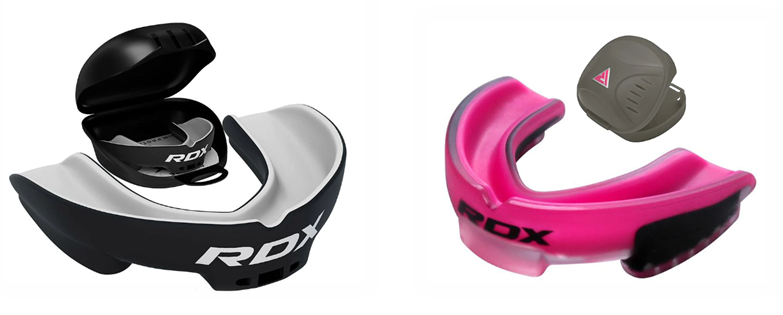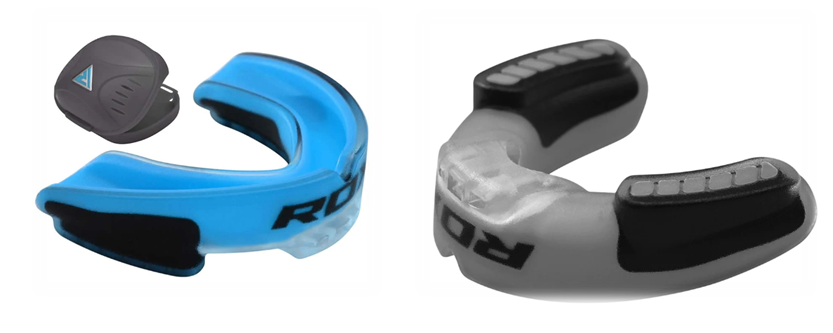
Mouth guards are an essential piece of protective gear for athletes participating in various sports and physical activities. They help prevent injuries to the mouth, teeth, and jaw, reducing the risk of dental trauma and other oral injuries. In this comprehensive guide, we’ll explore the importance of mouth guard for athletes and why they are a crucial investment in sports safety.
The Importance of Mouth Guards
- Protection from Impact Injuries:
Mouth guards act as a cushion, absorbing and dispersing the force of impact to the mouth and jaw area. This helps prevent injuries such as broken teeth, fractured jaws, and soft tissue damage.
- Prevention of Dental Trauma:
By providing a protective barrier between the teeth, mouth guard reduce the risk of dental trauma caused by direct blows or collisions during sports activities.
- Safeguarding Against Concussions:
Studies have shown that properly fitted mouth guards may help reduce the risk of concussions by absorbing impact forces and stabilizing the jaw during contact sports.
Types of Mouth Guards:
There are several types of mouth guards available, each offering varying levels of protection and comfort. Here are the main types of mouth guard:
- Custom-Fitted Mouth Guards:
Custom-fitted mouth guards are individually designed and fabricated by dental professionals. They are made from impressions of your teeth, providing a precise fit that offers optimal protection and comfort. Custom mouth guard are highly recommended for athletes who require maximum protection and are willing to invest in a tailored solution.
- Boil and Bite Mouth Guards:
Boil and bite mouth guards are pre-formed, but they can be customized to fit the shape of your teeth and mouth. To customize a boil and bite mouth guard, you simply heat it in hot water, and then bite down on it to mold it to your teeth. While not as precise as custom-fitted mouth guard, boil and bite mouth guards offer a more personalized fit than stock mouth guard and are readily available at sports stores.
- Stock Mouth Guards:
Stock mouth guards are pre-formed and come ready to wear without any customization. They are typically the least expensive option but may provide a poor fit and minimal protection compared to custom-fitted or boil and bite mouth guard. Stock mouth guards are a convenient choice for athletes on a budget or those who need a temporary solution.
Each type of mouth guard has its advantages and disadvantages, so it’s essential to consider your specific needs and preferences when choosing the right mouth guard for you. Custom-fitted mouth guard offer the best fit and protection but may be more expensive, while boil and bite mouth guards offer a compromise between custom-fit and affordability. Stock mouth guard are the most affordable option but may sacrifice comfort and protection for convenience.
Choosing the Right Mouth Guard:
Choosing the right mouth guard is crucial for ensuring optimal protection during sports and physical activities. Here are some factors to consider when selecting the appropriate mouth guard:
- Sport and Level of Contact:
The type of sport you participate in and the level of contact involved play a significant role in determining the type of mouth guard you need. High-impact sports like football, hockey, and boxing require more robust mouth guards to withstand potential blows and collisions.
- Comfort and Fit:
A comfortable mouth guard that fits properly is more likely to be worn consistently. Look for a mouth guard that molds to the shape of your teeth and gums for a snug yet comfortable fit. Custom-fitted mouth guard, made by dental professionals, offer the best fit and comfort.
- Retention:
Retention refers to how well the mouth guard stays in place during physical activity. A mouth guard with proper retention will not shift or dislodge easily, even during intense movement. This ensures continuous protection throughout your sports activities.
- Durability and Material:
Consider the durability of the mouth guard material, especially if you participate in high-impact sports. While custom-fitted mouth guards typically offer the best protection, boil and bite mouth guards can also provide adequate durability if made from high-quality materials.
- Breath ability and Speech:
Some mouth guard may affect your ability to breathe or speak comfortably. Look for a mouth guard that allows for easy breathing and clear speech without compromising protection. Proper airflow is essential, especially during intense physical exertion.
- Ease of Cleaning and Maintenance:
Regular cleaning and maintenance are essential for prolonging the lifespan of your mouth guard and ensuring hygienic use. Choose a mouth guard that is easy to clean and sanitize after each use to prevent bacterial growth and odors.
By considering these factors, you can select a mouth guards that offers optimal protection, comfort, and durability, allowing you to focus on your performance with confidence and peace of mind.

How to Wear and Maintain Mouth Guards
Properly wearing and maintaining your mouth guard is essential for ensuring its effectiveness and longevity. Here are some guidelines for wearing and caring for your mouth guard:
- Proper Placement:
When wearing your mouth guard, ensure that it covers your upper teeth completely. The guard should fit snugly against your teeth and gums without impeding your ability to breathe or speak comfortably.
- Secure Fit:
Make sure your mouth guard stays securely in place during physical activity. If it feels loose or shifts around in your mouth, it may not provide adequate protection. Adjust the fit as needed to ensure a snug and secure fit.
- Regular Cleaning:
After each use, rinse your mouth guard with cool water and mild soap or mouthwash to remove any debris or bacteria. Avoid using hot water, as it can warp the shape of the mouth guard. Allow the guard to air dry thoroughly before storing it in its case.
- Avoiding Damage:
Handle your mouth guard with care to avoid damaging it. Avoid biting down too hard or chewing on the mouth guard, as this can weaken the material and compromise its effectiveness. Store your mouth guard in its case when not in use to protect it from damage and contamination.
- Regular Inspection:
Periodically inspect your mouth guard for signs of wear and tear, such as cracks, tears, or distortion. If you notice any damage, replace the mouth guard immediately to ensure continued protection.
- Proper Storage:
Store your mouth guard in a clean, dry case when not in use to protect it from dirt, bacteria, and damage. Avoid leaving your mouth guard exposed to sunlight or extreme temperatures, as this can degrade the material over time.
By following these guidelines for wearing and maintaining your mouth guard, you can ensure that it provides optimal protection and comfort during sports and physical activities. Regular cleaning, proper storage, and careful handling will help prolong the lifespan of your mouth guard and keep you safe on the field or court.
Conclusion:
Mouth guards play a vital role in protecting athletes from dental injuries and oral trauma during sports and physical activities. By investing in a properly fitted and well-maintained mouth guard, athletes can enjoy enhanced safety and peace of mind on the field or court.

